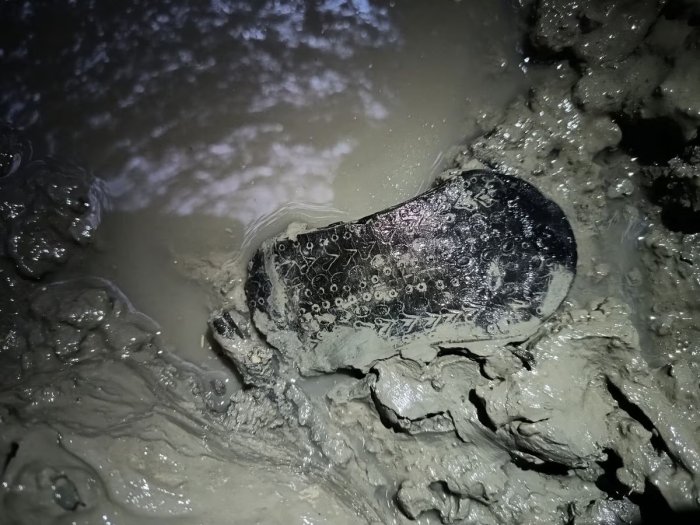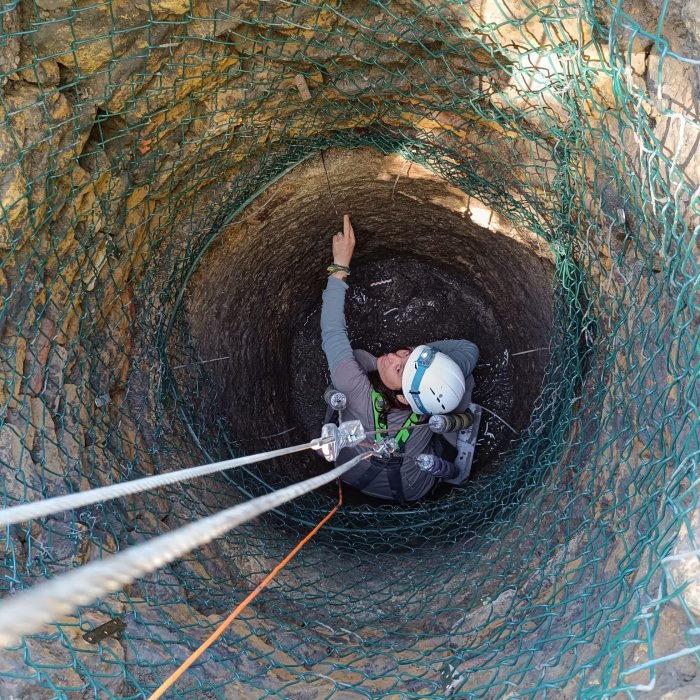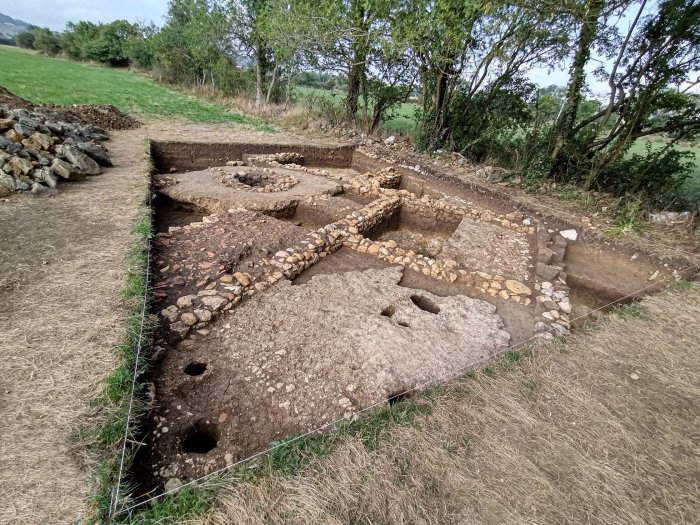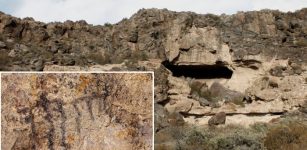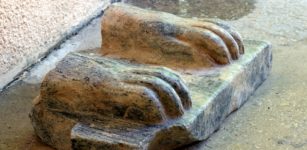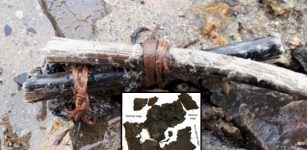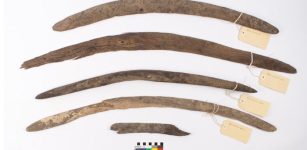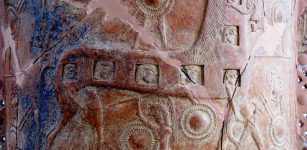Unique 2,000-Year-Old Decorated Roman Sandal Lost By Well-Cleaner Found In Spain
Jan Bartek - AncientPages.com - About 2,000 years ago, a Roman man tried to clean a well and lost a sandal. The well-preserved ancient shoe was discovered during archaeological excavations at Lucus Asturum (modern-day Lugo de Llanera in Asturias, northern Spain).
Mentioned by astronomer, mathematician, and geographer Ptolemy in his work Geography Lucus Asturum was a Roman settlement that served as an administrative center and communications hub in the north of the Iberian Peninsula between the first and fourth centuries A.D. between the first and fourth centuries A.D.
The Roman sandal discovered in Lugo de Llanera, Asturias. Credit: Esperanza Martín
Over the years, archaeologists have unearthed Roman thermal baths, buildings, and intriguing artifacts at the site.
Two years ago, in 2021, "a team led by archaeologist Esperanza Martín located a large house with a central courtyard and a well. This summer, excavations at the site were resumed and the archaeologists decided to descend, using a system of pulleys to avoid damaging the remains, to the bottom of the well.
Inside, among many other Roman pieces, they found a sandal lost by a man who tried to clean the well 2,000 years ago. Despite the humbleness of the object, it is a unicum — an archaeological object without equal — because it is decorated with circles, ovals, and falciform figures.
There are no more than 20 Roman sandals preserved in Hispania and this is the only one that is decorated. It is in a good state of preservation, as the silt at the bottom of the well generated an anaerobic system that prevented the reproduction of microorganisms," El Pais reports.
“The remains we found, due to the anoxia generated by the high water table in the area, are in an exceptional state,” says Martín.
Archeologist Esperanza Martín descends into the well discovered in Lugo de Llanera. Credit: Esperanza Martín
“The silts have created an anaerobic environment thanks to the plasticity of the clays that compose them, so the organic materials have been perfectly preserved.” At a depth of about three meters, the specialists extracted part of the wooden cover of the well, a tiled floor for the decantation of silts, several jars, seeds, chestnuts, pine nuts, mollusks, the remains of domestic and wild fauna, an acetre, or bronze, cauldron, a small metal ring and the sandal, among other objects.
A house uncovered during excavations at Lucus Asturum. Credit: Esperanza Martín
“It is almost complete and retains the cutting notches to hold it in the upper leg area. It is more than likely that it was lost by someone who came in to clean [the well] when it got caught in the silt. It is a unique object as it is decorated.”
See also: More Archaeology News
The ancient sandal lost by the Roman well-cleaner "is currently refrigerated to avoid degradation until it can be restored and exhibited in the Archaeological Museum of Asturias," El Pais reports.
Romans produced excellent shoes that were meant to last. A similar find was made in the small village of Thérouanne, France, where archaeologists discovered 1,700-year-old Roman shoes and an exceptional glass workshop.
Written by Jan Bartek - AncientPages.com Staff Writer

